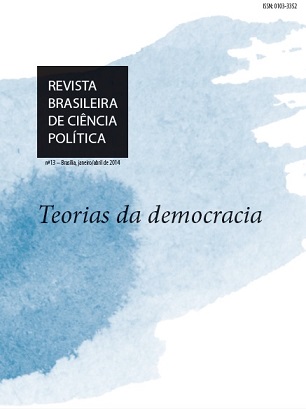Il Principe e seus contratempos: De Sanctis, Croce e Gramsci
Resumo
Resumo
Com a constituição da moderna nação italiana, a partir de meados do século XIX, tornou-se característico do pensamento político da península o constante apelo à reconstrução de uma tradição intelectual nacional. Esta era parte dos desafios da construção de uma nova ordem política e social que orientava, entre outras coisas, um retorno à história do Renascimento e à figura de Nicolau Maquiavel. A partir de 1859, o Risorgimento italiano ganharia novo impulso e culminaria com a derrota do papado e a construção de uma nova nação entre 1861 e 1871. Ao longo dessa década, período de triunfo da unificação, foi preparado um retorno definitivo de Maquiavel à cultura italiana. O revigoramento da historiografia e da ciência política italiana não deixou de ser, assim, um reencontro com a tradição maquiaveliana. O Risorgimento foi, também, o renascimento de Maquiavel. Este ensaio busca analisar três momentos desse retorno, que foram, ao mesmo tempo, tentativas de um acerto de contas com uma história italiana que remonta ao século XVI, cristalizada nas obras de Francesco De Sanctis (1817-1883), Benedetto Croce (1866-1952) e Antonio Gramsci (1891-1937).
Palavras-chave: Maquiavel, Risorgimento, Francesco De Sanctis, Benedetto Croce, Antonio Gramsci.
Abstract:
With the establishment of the modern Italian nation after the mid-nineteenth century, a constant appeal to the reconstruction of a national intellectual tradition became typical of the Peninsula’s political thinking . The latter was part of the challenges of building a new political and social order that guided among other things, a return to the history of the Renaissance and to the figure of Niccolò Machiavelli. Italian Risorgimento would gain new thrust and come to an apex with the papacy’s defeat and the construction of a new nation between 1861 and 1871. Along that decade ”“ a time of triumph for unification, a definite return of Machiavelli to Italian culture was prepared. The reinvigoration of historiography and political science in Italy was, therefore, a sort of reencounter with Machiavellian tradition. The Risorgimento was also Machiavelli’s rebirth. This essay seeks to examine three moments of this return, which were at the same time attempts to settle accounts with Italian history dating back to the sixteenth century, crystallized in the works of Francesco De Sanctis (1817-1883), Benedetto Croce (1866-1952), and Antonio Gramsci (1891-1937).
Keywords: Machiavelli, Italian Risorgimento, Francesco De Sanctis, Benedetto Croce, Antonio Gramsci.


